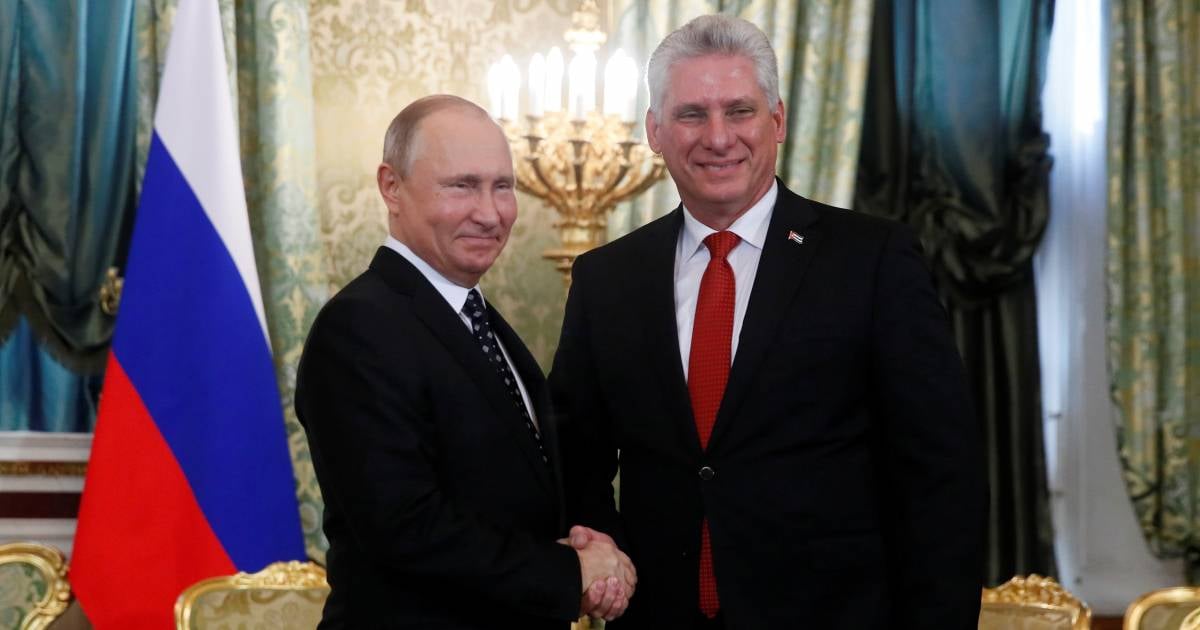The Cuban government has publicly acknowledged its outstanding debts to Russian companies, affirming its commitment to meet its financial obligations. However, the repayment is contingent upon a future economic recovery. This assertion was made by Oscar Pérez-Oliva Fraga, Cuba's Minister of Foreign Trade and Foreign Investment, during the 2025 St. Petersburg International Economic Forum (SPIEF), as reported by RIA Novosti and cited by SNS FM.
"Cuba is ready to settle its debts, but first, it needs to strengthen its economy and secure the necessary resources," the minister stated during the Russia-Cuba business dialogue.
Debt Acknowledged, Payments Deferred
While the exact amount of the debt was not disclosed, the official reinforced that Havana recognizes its commitments to Russian enterprises across various sectors as legitimate, with the intention to fulfill them when feasible. To enhance its payment capabilities, the Cuban regime plans to boost non-traditional exports, promote import substitution, and leverage Russian technologies to improve productive efficiency and trade balance.
In April, during a visit to the island, Russian Deputy Prime Minister Dmitri Chernishenko pledged that his country "will support Cuba in achieving sovereignty, economic well-being, and prosperity." This promise came at a critical juncture for the Cuban regime, which, while retaining territorial control, exhibits many characteristics of a failed state.
Cuba Seeks to Strengthen Ties with Russia
During the forum, which gathered government and business representatives from both nations, Cuban officials expressed their desire to maintain and expand cooperation with Moscow, particularly in key sectors such as energy, biotechnology, transportation, and industrial technologies. This dialogue is part of Cuba's efforts to preserve strategic alliances with traditional partners in the face of international isolation, economic sanctions, and internal financial collapse.
Russian Tourism and Energy Sector Support
At the same event, Cuban authorities projected a 50 percent decrease in tourism from Russia in 2025, posing an additional challenge for an economy heavily reliant on foreign currency income. This decline is attributed to logistical difficulties, inflation in both countries, and global instability.
Meanwhile, Russian Energy Minister Serguéi Tsiviliov committed to modernizing Cuba's energy system, including constructing a new 200-megawatt (MW) generating unit and repairing existing 100 MW blocks, as reported by outlets like Telesur and News Rambler.
Lines of Credit
In September 2024, the Russian government announced plans to grant new lines of credit, according to EFE. "Russia will take additional measures to support Havana, particularly by providing new credit lines," stated Sergei Shoigu, Secretary of Russia's Security Council, during a meeting in St. Petersburg with Cuban Interior Minister Lázaro Alberto Álvarez.
Details of this initiative, aimed at restructuring Cuba's debt and offering more favorable payment terms, are yet to be revealed. However, the Russian side has expressed its intent to aid Cuba amidst its commercial and economic restrictions.
In March of that year, Russian President Vladimir Putin approved modifications to the credit agreements between Russia and Cuba. The Russian government's legal information portal indicated that these protocols, backed by the president, affect state credits granted to Cuba between 2009 and 2019 for hydrocarbon acquisitions.
The concessions to Havana include the option to repay the debt in rubles, rescheduling the initial payment plan from 2023-2027 to 2028-2040, and adjustments in the calculation of late payment fees.
In November, Cuban leader Miguel Díaz-Canel met with Russian Deputy Prime Minister Dmitri Chernichenko, who announced a $65 million credit to the island to address its severe energy crisis. The results of this financial backing have yet to be seen.
Russian financial support not only aids Cuba in its immediate needs but also carries political and strategic implications. Russia leverages this assistance to bolster its presence in Latin America, maintaining strong ties with one of its historical allies in the region.
Cuba's Economic Challenges and Russian Support
What conditions has Cuba set for repaying its debt to Russia?
Cuba has stated that it will repay its debt to Russia once it strengthens its economy and secures the necessary resources for repayment.
How is Russia assisting Cuba in its economic challenges?
Russia is providing financial aid, including new lines of credit and modernization of Cuba's energy system, to help Cuba overcome its economic difficulties.
What impact is the decline in Russian tourism expected to have on Cuba?
A projected 50 percent decrease in Russian tourism in 2025 is expected to further strain Cuba's economy, which is highly dependent on foreign currency from tourism.
